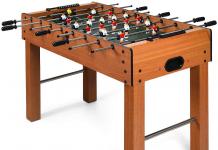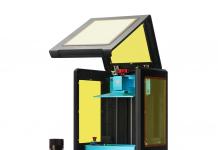What is more impressive, the fact that this low-cost Braille printer was built using mostly LEGO, or that the project was made by a 12-year old? Answering this question might prove very difficult.
Shubham Banerjee, the Californian seventh grader who invented the LEGO Braille printer, most probably didn’t mean to become famous after finishing this science fair project. Still, the fact that someone decided at such an early age to create something that could have a significant impact on the lives of several million people is definitely not your everyday news. Given the main components of this Braille printer, namely the LEGO bricks, it should not come as a surprise that Shubham’s project is very budget-friendly.

More precisely, Shubham put together this Braille printer using only a $350 Lego Mindstorms EV3 kit and hardware from Home Depot that only cost him a few dollars. Braigo, as he named the device, is based on the blueprints of a real Braille printer, but the software and the hardware were radically changed, while the function of printing Braille letters was successfully maintained.

Braigo’s controller scrolls through the alphabet and prints the desired letters on calculator paper, so even the consumables are cheap with this LEGO Braille printer. The prototype is rather slow, but Shubham intends to improve it so that it ends up printing entire pages in Braille.
Considering that Braille printers can cost upwards of $2,000, Shubham’s solution is a lot more cost-efficient, not to mention a lot easier to build and use. Watch the following video to get an idea about how Braigo looks and works in a real life scenario.
If you’re wondering what will happen to this project in the future, you might be surprised by the answer. Shubham doesn’t want to mass produce this in order to become a millionaire. Instead, he claims that Braigo will be an open-source project that anyone can change and improve according to his needs and wishes. The capabilities of Braigo could be furthermore extended by making changes to the software that this printer’s controller uses. The project itself is nothing short of amazing, and it’s great to see that some young geniuses are concerned about the fate of the disadvantaged.
Be social! Follow Walyou on Facebook and Twitter, and read more related stories about the Arianna app that uses haptic feedback to create a virtual cane for the blind or the world’s first Braille smartphone.










